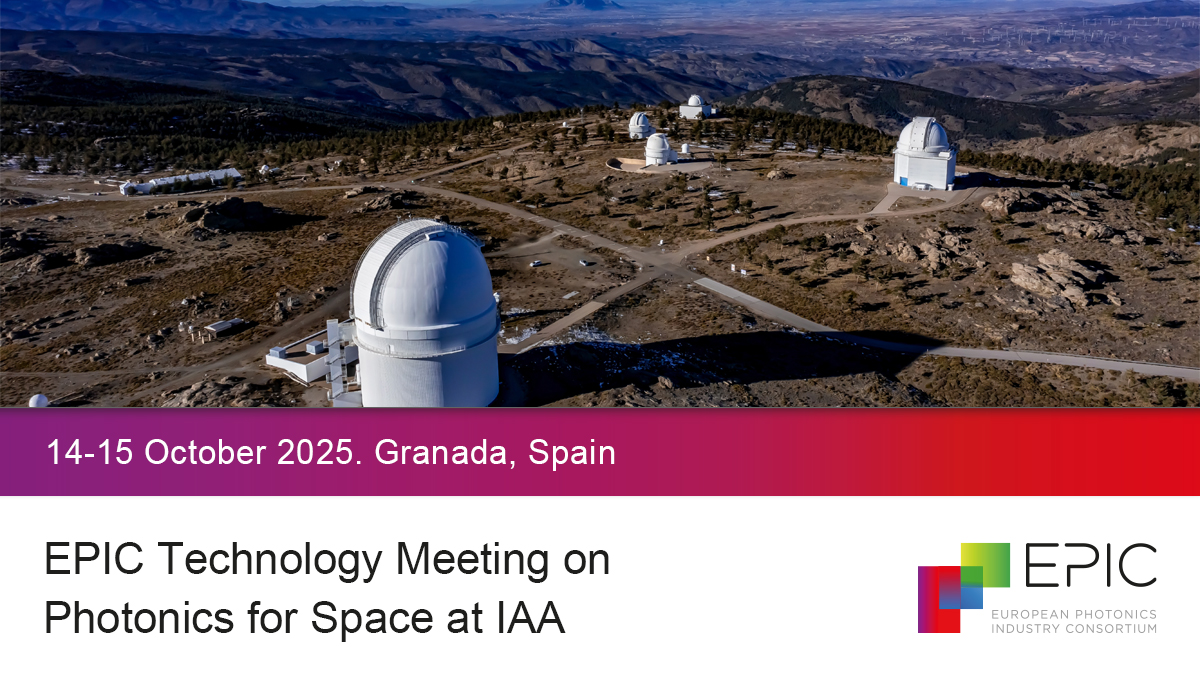 |
EPIC Technology Meeting on Photonics for Space at IAA Place: IAA-CSIC Summary: This EPIC Technology Meeting on Photonics for Space will delve into the latest advancements and challenges in applying photonics technology to space and new space, in harsh environments. Sessions will cover topics from the lastest development of photonic integrated circuits (PICs) for space, emerging trends and challenges in the new space, photonics for harsh environments, and the role and challenges of photonics in earth observation for environmental monitoring. Hosted by Instituto de Astrofísica de Andalucía, in Granada, Spain, it offers a unique opportunity for insightful discussions on the role of photonics in space within an environment rich in observatory, astrophysics, and space end-user expertise. The event aims to bring together industry experts to share insights, explore research and development opportunities, and facilitate efficient networking among participants. Date: October, 14th- 15th 2025 URL: https://epic-photonics.com/events/epic-technology-meeting-on-photonics-for-space-at-iaa/ |
|||
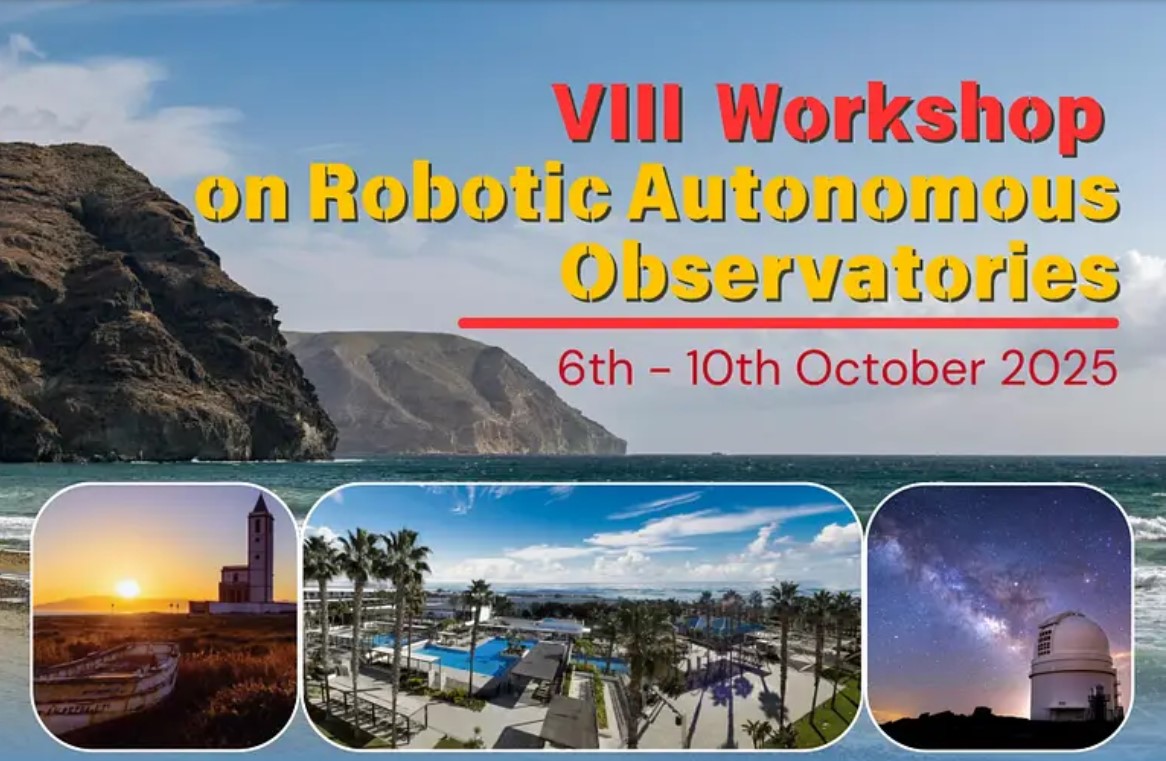 |
Eighth Workshop on Robotic Autonomous Observatories Place: Hotel Cabo de Gata El Toyo, Almeria Summary: Sixteen years after the inaugural workshop in Málaga, robotic and autonomous astronomical observatories have achieved remarkable advancements. The global number of automated facilities has grown substantially, along with their capabilities in robotization, autonomy, and networking. These developments, driven by the search for electromagnetic counterparts to gravitational waves (such as the groundbreaking detection in 2017), have profoundly influenced diverse areas of astrophysics and beyond, including: Fireball detection The workshop will also highlight the increasing importance of space debris surveillance and tracking, the observation of Near-Earth Objects, the role of robotic observatories in public outreach and education, and their contributions to open science. The Scientific Organizing Committee aims to deliver a dynamic program addressing scientific, technical, educational, and outreach themes. We encourage researchers, engineers, educators, and enthusiasts working in these fields to join us at AstroRob2025. The success of this workshop series has been largely due to the active participation, insightful presentations, and engaging discussions contributed by its attendees. Your involvement is key to making the forthcoming workshop Date: October, 6th- 10th 2025 URL: https://astrorob.com/ |
|||
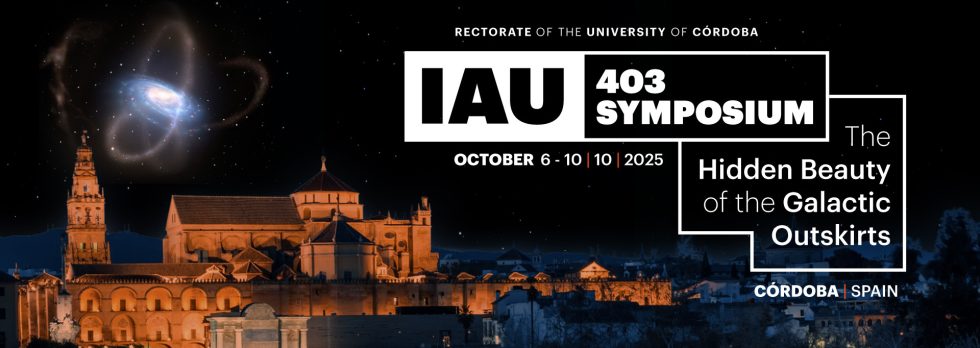 |
IAU Symposium – The Hidden Beauty of the Galactic Outskirts Place: Rectorado de la Universidad de Córdoba Summary: The IAU Symposium ‘The Hidden Beauty of the Galactic Outskirts’ aims to bring together experts in galaxy formation and evolution to discuss the latest research, challenges, and future directions in the field. The symposium will take place in the historic city of Córdoba, Spain, from October 6-10, 2025. Córdoba, a UNESCO World Heritage Site, offers a rich cultural and historical backdrop for this prestigious event. Participants will have the opportunity to explore the city’s stunning architecture, including the famous Mosque-Cathedral, and enjoy its vibrant cultural scene. The symposium will provide a platform for scientists to share their latest findings, foster new collaborations, and inspire future research. The event is expected to attract around 150 participants from various countries, creating a diverse and dynamic environment for knowledge exchange. Sessions will cover a wide range of topics, from tidal streams and the disruption of satellite galaxies to the role of dark matter in galaxy formation. With a programme designed to encourage in-depth discussions and collaborative opportunities, this symposium promises to be a milestone event in the field. Date: October, 6th- 10th 2025 URL: https://www.iausymposium403.com/ |
|||
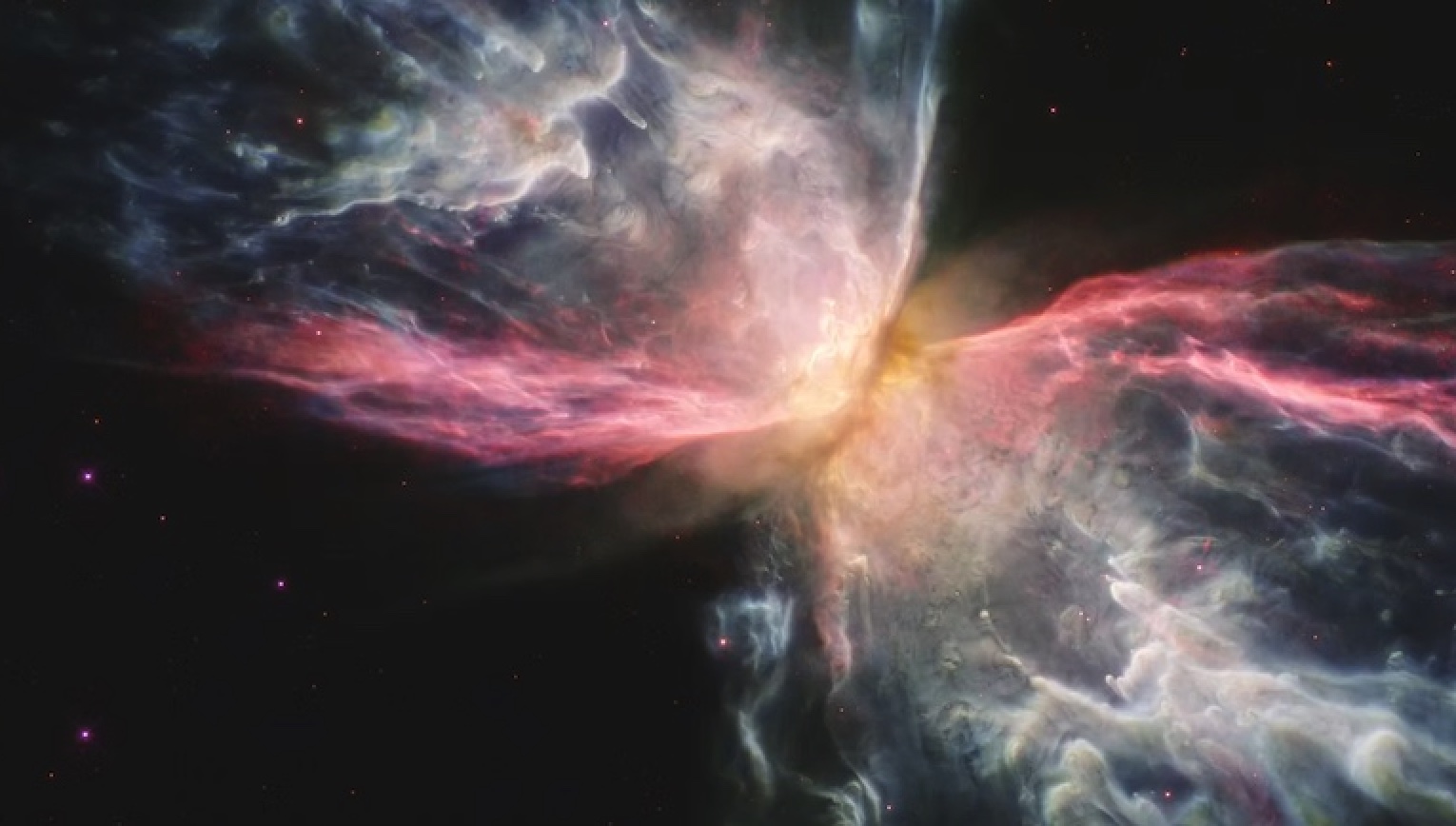 |
Asymmetrical Post-main-sequence Nebulae 9 Place: IAA-CSIC Summary: A meeting devoted to the shaping effects of stellar outflows from evolved stars in the formation of asymmetrical post-main-sequence nebulae including planetary nebulae, nebulae around massive stars, nova remnants, symbiotic stars, etc. Scientific topics: 1.- Puzzling evolved star nebulae that challenge our present knowledge: morphology, kinematics, chemistry, time-scales, exotic central stars, ... statistics: common and uncommon 2.- PNe related/unrelated objects: novae, SNR, LRN (mergers), massive stars, symbiotics, ... transient nebulae and other eruptive objects 3.- Shaping Agents: mass-loss mechanisms role of binarity -- binary mass-transfer, common envelope magnetic fields -- strength, structure other agents disks, circumbinary disks, jet launching 4.- Nebular sequences: connecting the shape of sources in the AGB, post AGB, proto PN and PN phases evolutionary time-scales 5.- Binarity: observational and theoretical expectations links to common envelope, time-scales, mergers, exotic central stars 6.- Future: maximazing science from available and planned facilities Date: September, 22nd- 26th 2025 URL: https://www.granadacongresos.com/apn9 |
|||
 |
RIA – Promoviendo Sinergias entre Grandes Observatorios Españoles 2 Place: IAA-CSIC Summary: La Red de Infraestructuras de Astronomía (RIA) y las Instalaciones Científico-Técnicas Singulares (ICTS) de Astronomía que coordina organizan en Granada el segundo encuentro “Promoviendo sinergias entre grandes observatorios españoles. II”. Tras la primera edición celebrada en La Palma (enlace a la edición anterior) en 2023, en la que se impulsó el intercambio inicial de experiencias, esta nueva edición tiene como objetivo consolidar las sinergias ya iniciadas y seguir fortaleciendo la colaboración entre los equipos técnicos de nuestras ICTS en astronomía. Este encuentro busca afianzar soluciones compartidas en áreas clave como la operación, los desarrollos tecnológicos o la protección del cielo, al tiempo que se fomenta la generación de nuevas ideas y estrategias comunes para afrontar los retos actuales y futuros. La reunión se financia a través del proyecto RED2022-134688-I de Redes de Investigación 2022, en su modalidad de Redes ICTS del Ministerio de Ciencia e Innovación, con la colaboración del Instituto de Astrofísica de Andalucía. Las ICTS integradas en la Red de Infraestructuras de Astronomía incluyen al Centro Astronómico Hispano en Andalucía (CAHA), el Gran Telescopio de Canarias (GRANTECAN), el Institut de Radioastronomie Millimétrique (IRAM), el Observatorio Astrofísico de Javalambre (OAJ), el Observatorio de Yebes (OY) y los Observatorios de Canarias (OCAN): el Observatorio del Teide (OT) y el Observatorio del Roque de los Muchachos (ORM). El encuentro se celebrará de forma presencial del 10 al 13 de junio de 2025 en el Instituto de Astrofísica de Andalucía, excepto la sesión específica sobre cuestiones administrativas, que tendrá lugar el día 11 en la sede del IRAM en Granada. Algunas sesiones de especial interés podrán retransmitirse por streaming. La participación está abierta a todas las instituciones que forman parte de la RIA, así como al personal de otros observatorios astronómicos profesionales afincados en España y de equipos dedicados a la construcción de instrumentación y al desarrollo de tecnologías astronómicas con participación española. Se espera que esta segunda edición permita a los equipos técnicos compartir experiencias, desarrollos y soluciones, fomentando sinergias que impulsen una mayor coordinación, eficiencia operativa y desarrollo conjunto, para una explotación óptima de estas instalaciones telescópicas y un mejor aprovechamiento de la excelente calidad de los cielos españoles. Date: June, 10th- 13th 2025 URL: https://riastronomia.es/promoviendo-sinergias-entre-grandes-observatorios-espanoles-ii/ |
|||
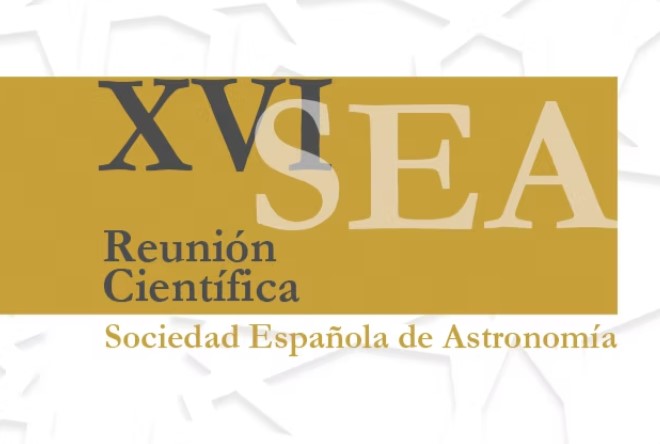 |
XVI Reunión Científica de la Sociedad Española de Astronomía Place: Parque de las Ciencias Summary: The XVI Scientific Meeting of the SEA will be held in Granada from July 15 to 19, 2024, organized jointly with the Instituto de Astrofísica de Andalucía (IAA-CSIC). As a new feature, this edition will offer the possibility to organize small thematic symposia within the scientific meeting. Date: July, 15th- 19th 2024 URL: https://www.granadacongresos.com/sea2024 |
|||
 |
I Encuentro entre el Instituto de Astrofísica de Andalucía (IAA-CSIC) y el Consorcio IFMIF-DONES Place: IAA-CSIC Summary: The scientific and technological alliance between the IAA-CSIC and IFMIF-DONES will increase collaboration between two scientific communities representing research excellence. The outstanding presence of the business sector in this event confirms the interest of the industry in the knowledge economy. This has been shown in this meeting, which was held at the IAA-CSIC and which has had the collaboration of the Chamber of Commerce of Granada and the Industry Office. Through different sessions, key issues such as the industrial and business impact on the city, possible future technological development projects, as well as collaborative strategies and training of qualified personnel were addressed. This is the first step towards a long-term collaboration with great impact on the city of Granada. Date: April, 8th2024 URL: https://www.iaa.csic.es/noticias/exito-i-reunion-iaa-dones |
|||
 |
Meeting on Light Pollution: Challenges and Responses for Monitoring It Place: IAA-CSIC Summary: Light pollution has a direct impact on the environment, on astronomical observations and on the starry sky as a heritage resource of humanity. Excessive light confuses the biological clocks of humans, animals and plants with its spectral composition similar to daylight. As a result, it makes it difficult to distinguish between day and night and between the seasons to which living organisms are physiologically attuned. Light pollution is therefore an environmental problem caused by the inappropriate use of artificial light (the pollutant) with a strong transboundary character because, under the right conditions, light can spread up to hundreds of kilometres away from its source. It can therefore affect habitats far away from the pollutant sources. For this reason, the Ministry of Science and Innovation of the Spanish government, through the Instituto de Astrofísica de Andalucía of the Consejo Superior de Investigaciones Científicas, is organising, in collaboration with the Spanish Network of Studies on Light Pollution, this international scientific meeting dedicated to addressing the pressing issues surrounding light pollution and its monitoring, which is a matter of significant environmental and legal concern. This meeting is dedicated to addressing the pressing issues surrounding light pollution and its monitoring, which is a matter of significant environmental and legal concern. The program is structured into four insightful sessions:
Date: November, 14th- 15th 2023 URL: https://www.iaa.csic.es/noticias/meeting-light-pollution-challenges-and-responses-monitoring-it |
|||
 |
ANDES Technical Meeting Place: IAA-CSIC Summary: Technical Meeting of the ANDES Consortium to further the design of the ANDES/ELT UBV and RIZ spectrographs. Date: October, 24th- 25th 2023 URL: https://www.iaa.csic.es/meetings/andes-technical-meeting |
|||
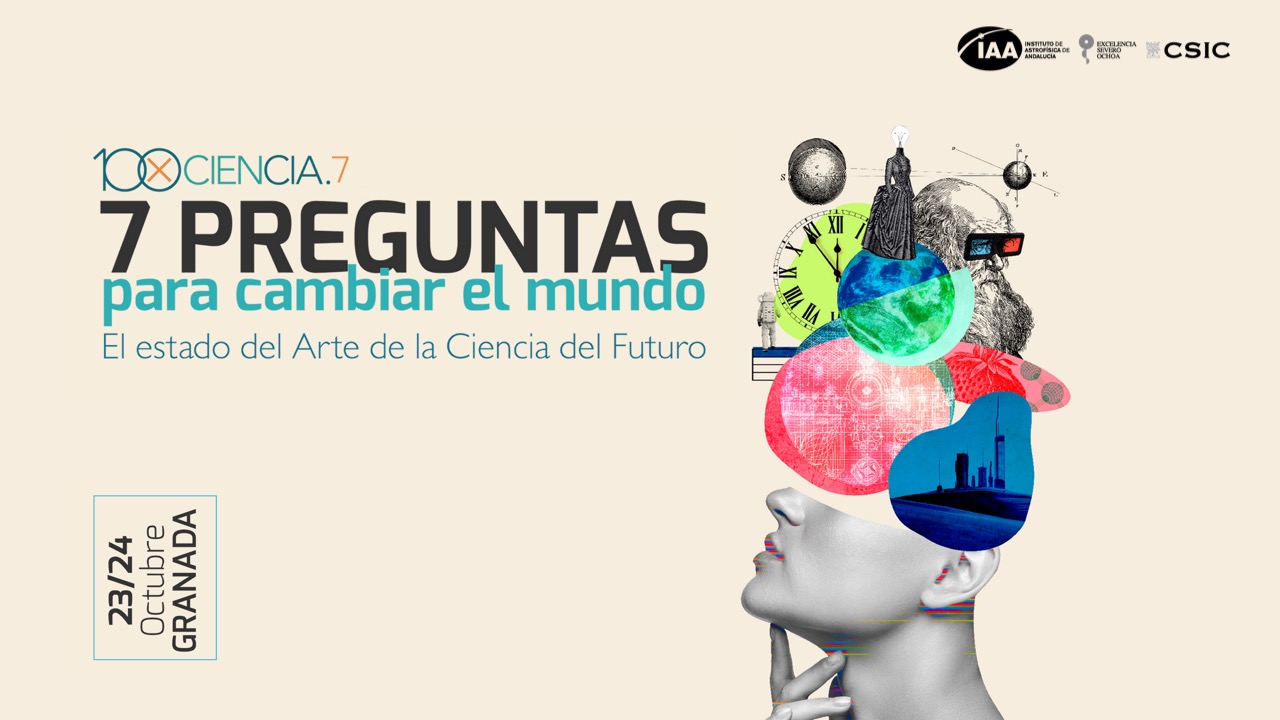 |
100 x Science: Seven questions that will change the world Place: Parque de las Ciencias Summary: With the event "Seven questions that will change the world" we aim to take a well-meaning look at what lies ahead. We want to play at imagining what science will be like in ten, twenty, fifty years' time... What will it have to face? What challenges will it have to take on? What capacities will we be able to achieve? We are going to try to describe the future as realistically as possible. But, as we have already said, we are not going to succeed. If the history of science and technological development shows us anything, it is that the smart thing to do is to refrain from trying to predict anything. New disruptive technologies will emerge, paradigms will change, seemingly immovable foundations will fall, ideas that nobody imagined will emerge and unexpected discoveries will be made... or perhaps none of this will happen. The only thing that is certain is that the horizon looks worrying. That there are things that must be changed, and that science and technology must help us to do so. To lead the way. But to do so, we must listen to those who know. And this is what we are going to do. Eight expert voices will speak today about the science of the future. They will try to answer seven key questions that will mark the path of what is to come, of the future that awaits us. And all this wrapped in music that emerges from the most traditional and classical past to the present. Art of always for the science and technology of the future. "Seven questions that will change the world" (The state of the "art" of the science of the future) is part of 100xCiencia.7, the annual meeting of the SOMMa alliance that brings together the scientific community of the Severo Ochoa Centres of Excellence and María de Maeztu Units of Excellence, which in this seventh edition will bring together representatives of the 65 entities that currently form part of the alliance. Date: October, 23rd- 24th 2023 URL: https://www.granadacongresos.com/100xciencia7 |
|||
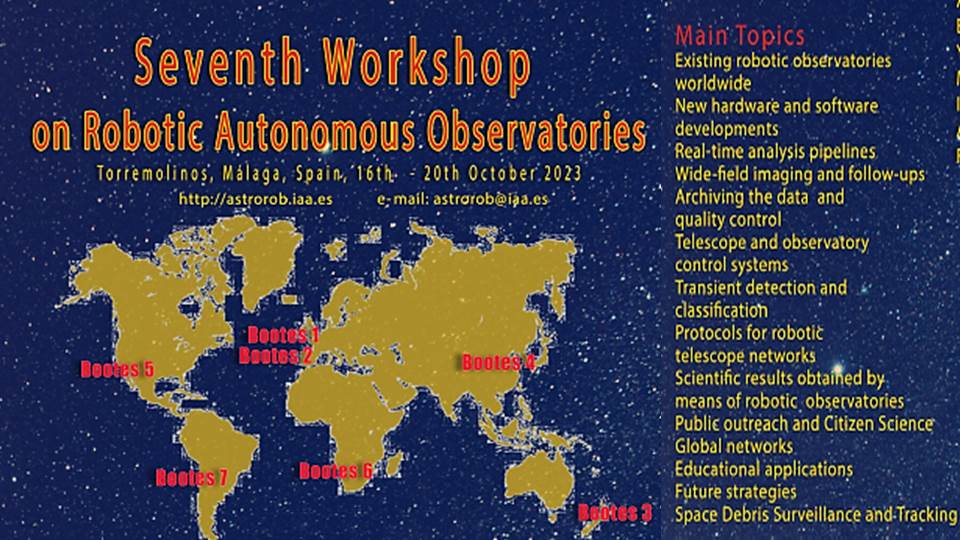 |
7th Workshop on Robotic Autonomous Observatories (AstroRob 2023) Place: Torremolinos, Málaga Summary: Fourteen years after the celebration of the First Workshop on robotic autonomous observatories in Málaga, the number of automatic astronomical facilities worldwide has significantly grown, as well as the level of robotisation, autonomy, and networking, with many recent developments motivated by the search of new electromagnetic counterparts to gravitational waves in the next months. This has a strong impact in many other astrophysical fields, like fireballs detection, minor planet studies, the search for extra-solar planets, the monitoring of variable stars in our Galaxy, the study of active galactic nuclei, the detection and monitoring of supernovae, and the immediate follow-up of high-energy transients such as cosmic gamma-ray bursts, besides the search of neutrino and gravitational waves electromagnetic counterparts. Last, but not least, space debris surveillance and tracking is another field of increasing interest. Educational aspects will be also covered. Thus, the main focus of the workshop will be on the new and existing astronomical facilities whose goal is to observe a wide variety of astrophysical targets with no (or very little) human interaction. As in the past 14 years, we expect the workshop will continue as an international forum for researchers to summarize the most recent developments and ideas in the field, with a special emphasis given to the Technical and Scientific results obtained within the last two years and future developments, with specific sessions on Educational Activities and Space Surveillance and Tracking. Date: October, 16th- 20th 2023 URL: https://www.iaa.es/en/meetings/seventh-workshop-robotic-autonomous-observatories |
|||
 |
SO/PHI Team Meeting Place: IAA-CSIC Summary: The Solar Orbiter PHI team meeting will take place in Granada. In this meeting we will discuss the status of the instrument and the science. Date: October, 9th- 11th 2023 URL: https://www.iaa.csic.es/meetings/sophi-team-meeting |
|||
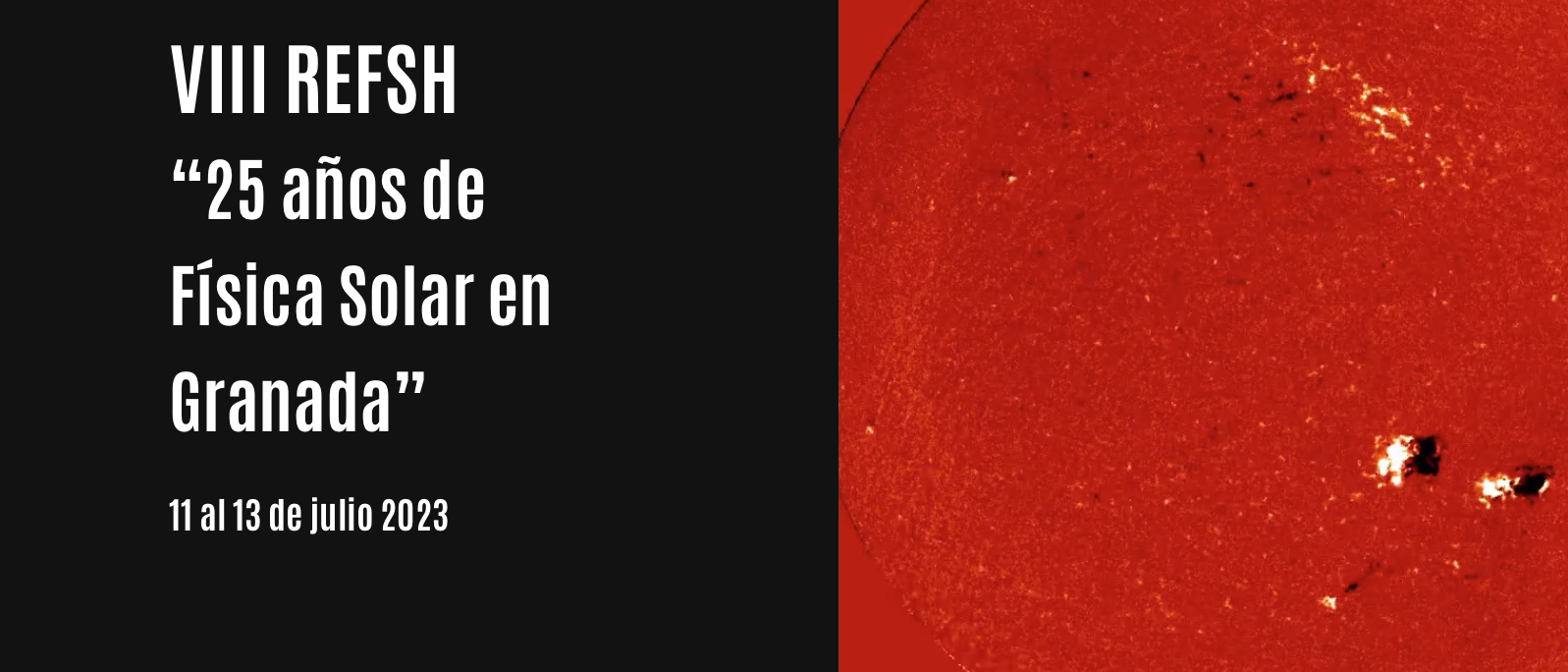 |
VIII Spanish Meeting of Solar Physics and Heliospheric Place: IAA-CSIC Summary: Like previous meetings, the eighth edition of the Spanish Solar and Heliospheric Physics Meetings aims to review and highlight the excellent health of Spanish research in these disciplines. Through multidisciplinary sessions mixing studies of the different layers of the Sun and the interplanetary medium and including theory as well as observations and instrumentation, the Spanish community will be able to share the latest advances. Special emphasis will be put on the specialised use and development of new instrumentation. In particular, campaigns on the Canary Islands observatory telescopes, developments for the European Solar Telescope and participation in space missions such as ESA's Solar Orbiter and Vigil will be of particular relevance. Date: July, 11th- 13th 2023 URL: https://www.granadacongresos.com/refsh |
|||
 |
Quantum Field Theory in Curved Spacetimes Workshop II Place: IAA-CSIC Summary: The study of quantum fields in curved spacetime has delivered many important insights not only in the regime of extreme gravitational phenomena, but also in the foundations of quantum field theory. The purpose of the workshop is to bring together researchers with different backgrounds and levels of expertise to foment discussions around fundamental topics within the field:
As a new feature for this second edition we intend to branch out discussions into fields that are not usually given the spotlight within the community but are nonetheless crucial to its foundation. In particular, we plan to include topics related with quantum gravity, namely how QFTCS fits within the different approaches toward quantum gravity. We strongly encourage the participation of researchers from the field of quantum gravity with an interest in phenomenology and QFTCS. Date: May, 24th- 26th 2023 URL: https://sites.google.com/view/qftcsworkshop2023/home?authuser=0 |
|||
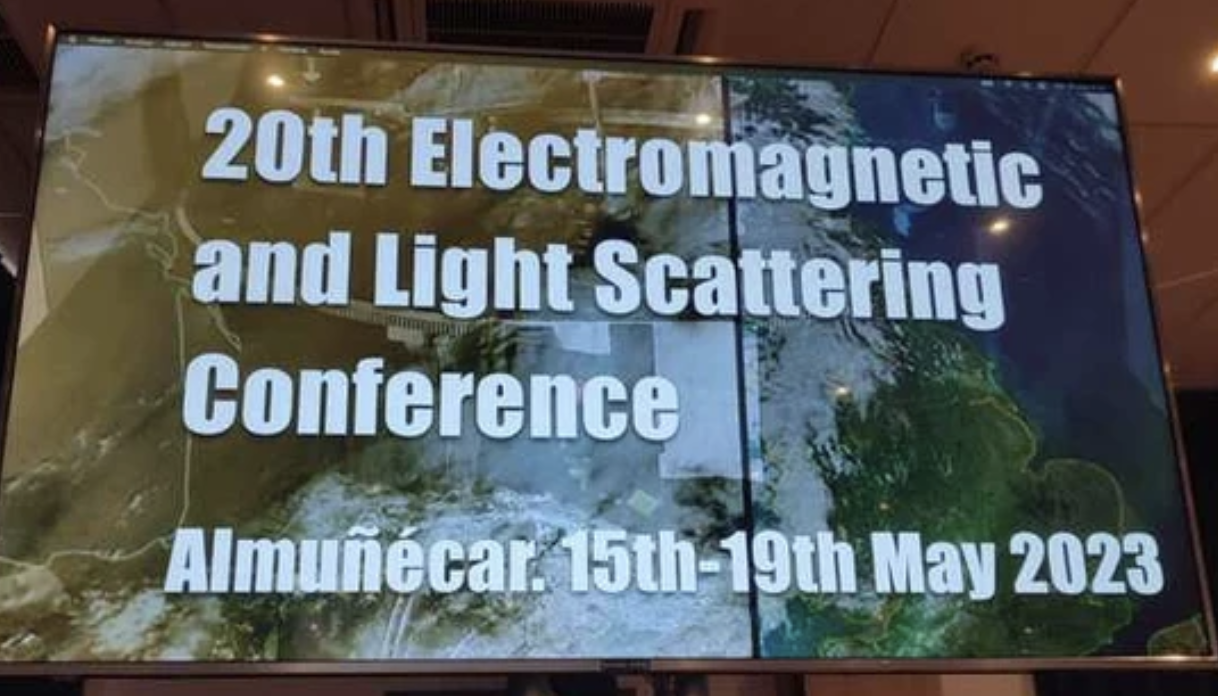 |
20th Electromagnetic and Light Scattering Conference Place: Almuñécar Summary: The 20th Electromagnetic and Light Scattering Conference (ELS-XX) will be held in Hotel “Bahía Tropical” located in Almuñecar, one of the most popular tourist destinations on the Costa Tropical of Granada, Spain. The conference will build on the remarkable success of the previous ELS conferences held in Amsterdam, Helsinki (twice), New York, Vigo, Halifax, Gainesville, Bremen, Salobreña, St. Petersburg, Bodrum, Hatfield, Taormina, Lille, Leipzig, College Park, College Station, Hangzhou, and the 19th conference held online on July 2021. The main goal of the ELS conference series is to bring together scientists and engineers studying various aspects of light scattering and to provide a relaxed academic atmosphere for in-depth discussions of theoretical advances, measurements, and applications. Date: May, 15th- 19th 2023 URL: https://www.granadacongresos.com/els2023 |
|||
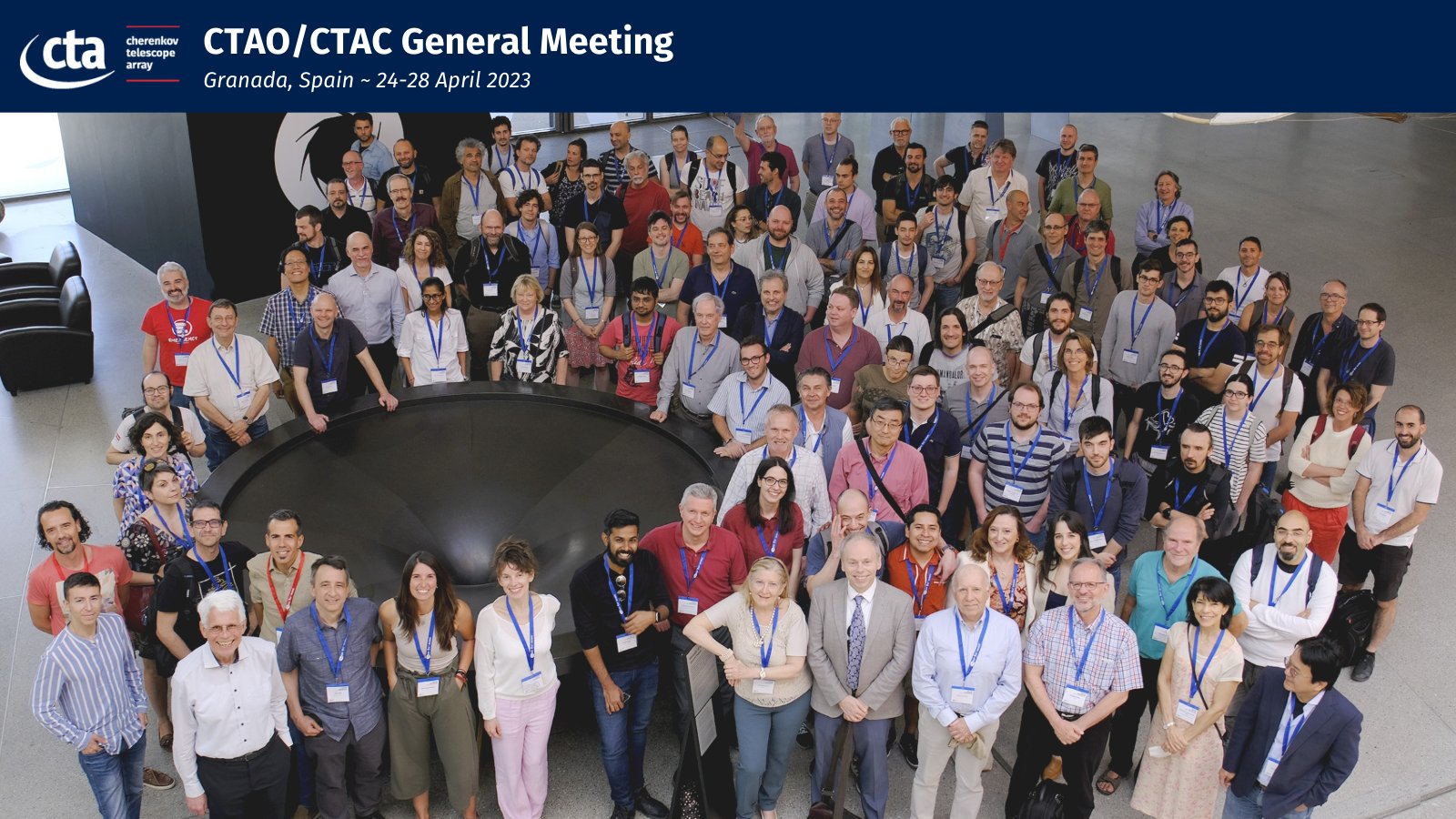 |
CTAC/CTAO General Meeting Place: Parque de las Ciencias Summary: The CTAO/CTAC Spring Meeting 2023 will take place in Granada (Spain) and will gather colleagues from the Cherenkov Telescope Array Observatory (CTAO) and the Cherenkov Telescope Array Consortium (CTAC), who will travel from around the world to attend or join remotely. With a new format that will allow more plenary sessions and discussion panels, the CTAO and CTAC members will present the latest results on different topics, such as science analysis tools, science data challenge, telescope development, computing or science communication, among others. Date: April, 24th- 28th 2023 URL: https://www.granadacongresos.com/ctac-ctao |
|||
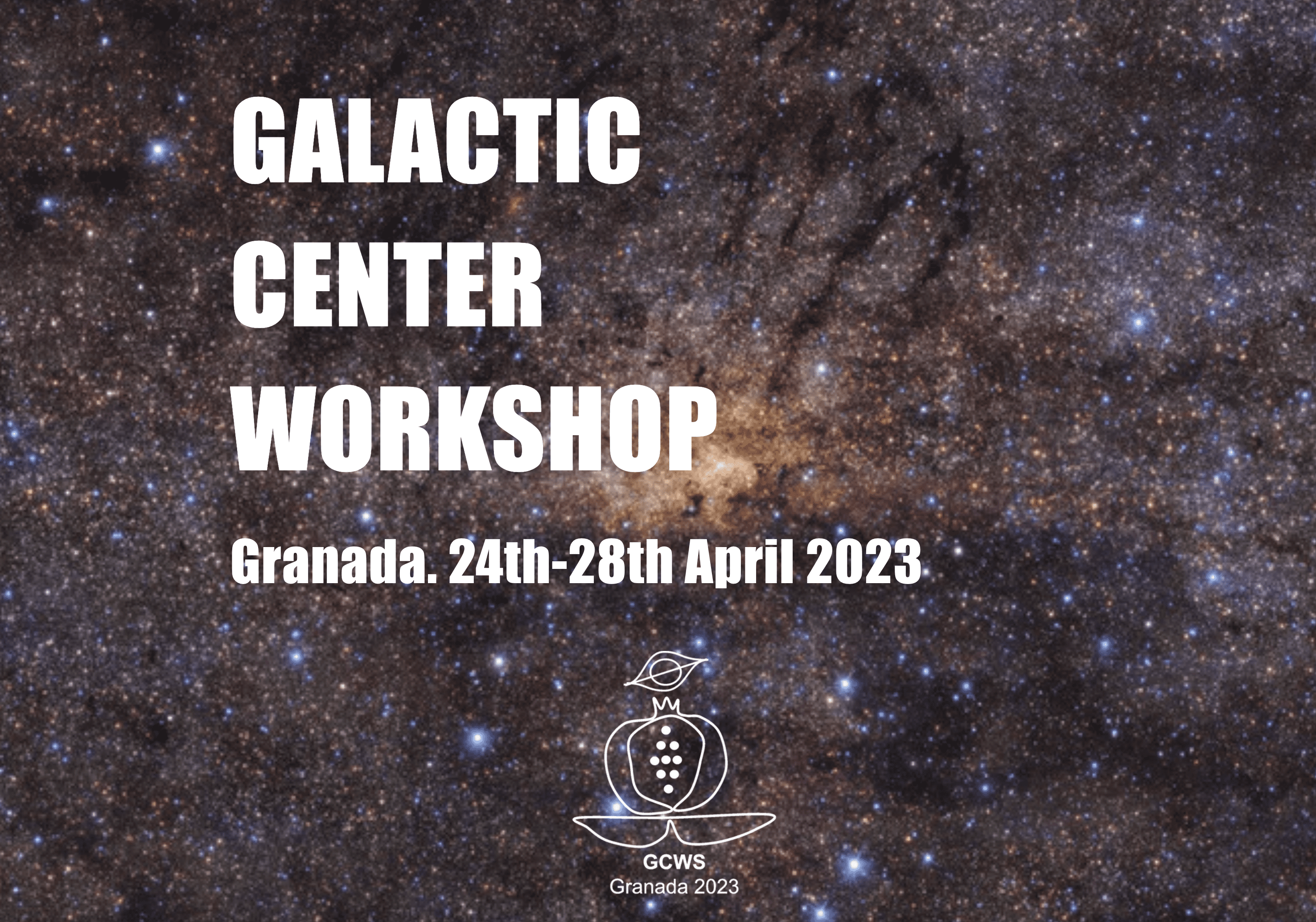 |
Galactic Center Workshop 2023 Place: Escuela Técnica Superior de Arquitectura Summary: The Galactic Center has often been called a "unique astrophysical laboratory”. This is as true as ever and the Galactic Center keeps providing rich inspiration and data to study an impressive number of science questions. In this conference we will review the progress in our field over that past four years and focus on some spectacular results. We will also link the physics of the Galactic Center to other galactic nuclei and galaxy evolution in general. The last meeting of the Galactic Center community took place in Yokohama in October 2019 (GCWS 2019 http://aysheaia.phys.keio.ac.jp/GCWS2019/index.html). It is high time for the next edition of this series of conferences, which will be held in Granada, Spain, at the end of April 2023.
Date: April, 24th- 28th 2023 URL: https://www.granadacongresos.com/gcw2023 |
|||
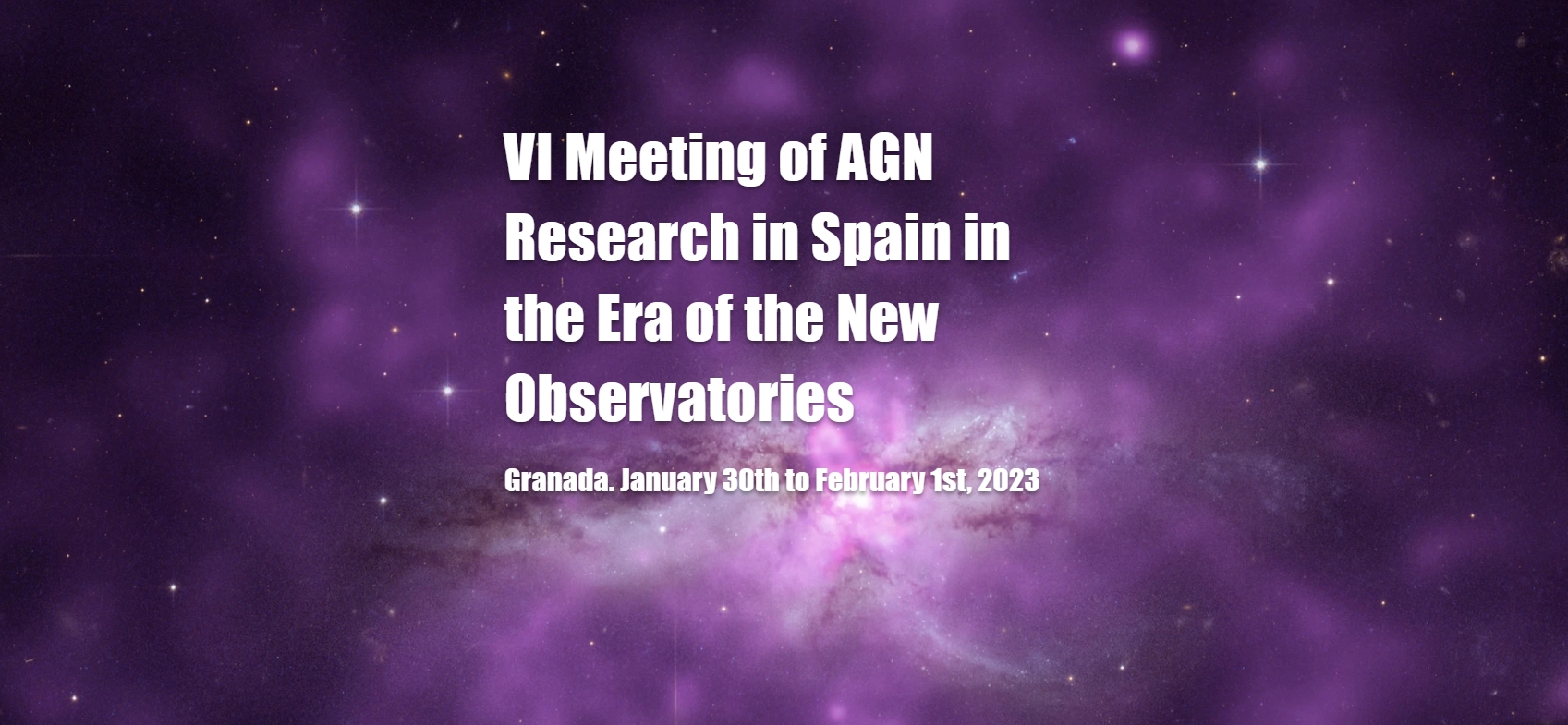 |
VI Meeting of AGN research in Spain in the era of the new observatories Place: IAA-CSIC Summary: Active galaxy nuclei (AGN) represent one of the most extreme phenomena in the universe. Since their discovery in the 1960s, AGNs have aroused great interest in the astrophysical community, first as exotic objects and now recognized as major players in galaxy evolution and even recently as candidates for standard candles in cosmology. Since the 1990s it has been well established that massive galaxies (and possibly all galaxies) harbor a supermassive black hole (SMBH) at their center, whose mass is strongly related to certain properties of the galaxy. The evolution of star formation history and AGNs appears to follow similar trends up to very early ages of the universe, while theoretical models indicate that nuclear activity is essential to regulate star formation through feedback mechanisms. Significant progress has recently been made in understanding the physical processes associated with AGNs, but important questions remain open, mainly about their intrinsic nature and their role in galaxy formation and evolution. Advances in the understanding of AGNs are supported by the availability of new astronomical technology that will, at present and in the near future, reduce some of the more severe limitations of previous instrumentation. Spatial resolutions will be achieved that will allow the study of the vicinity of the supermassive black hole and will cover ranges of the electromagnetic spectrum that have been little explored to date. Following the success of previous AGN meetings convened in our country, once again this meeting will allow to review the current understanding in AGN research, discuss the potential of recent and future instrumentation, and find synergies between the different Spanish AGN teams. Special attention will be given to new instrumental projects of relevant interest for AGNs studies in which Spain participates. Date: January, 30th- February, 1st 2023 URL: https://www.granadacongresos.com/agn2023 |
|||